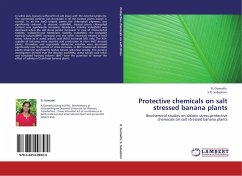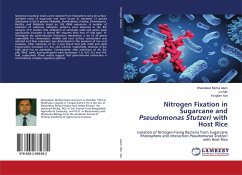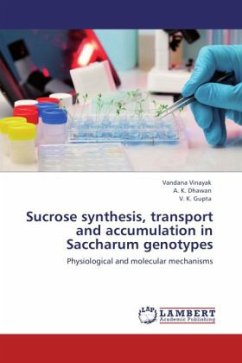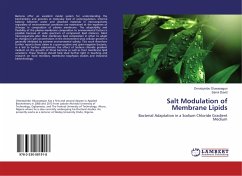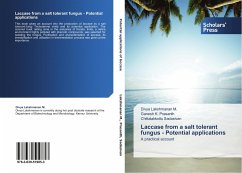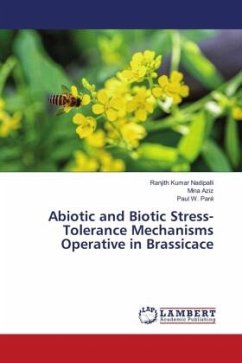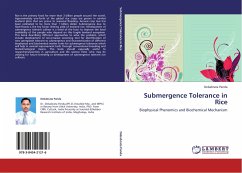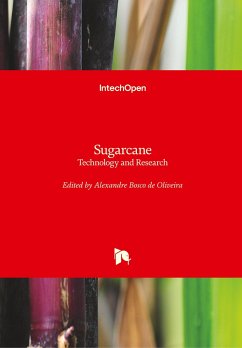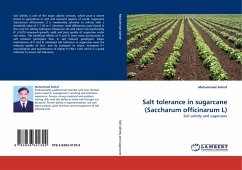
Salt tolerance in sugarcane (Saccharum officinarum L)
Soil salinity and sugarcane
Versandkostenfrei!
Versandfertig in 6-10 Tagen
52,99 €
inkl. MwSt.

PAYBACK Punkte
26 °P sammeln!
Soil salinity is one of the major abiotic stresses, which pose a severe threat to agriculture in arid and semiarid regions of world. Sugarcane (Saccharum officinarum L) is moderately sensitive to salinity with a threshold value of 1.7 dS m-1. However, wide differences were found in this crop for salinity tolerance. Potassium (K) and silicon (Si) significantly (P 0.05) improved growth, yield and juice quality of sugarcane under salt stress. The beneficial effects of K and Si were more pronounced in salt sensitive genotypes than in salt tolerant genotypes. Major mechanisms of K and Si mediated s...
Soil salinity is one of the major abiotic stresses, which pose a severe threat to agriculture in arid and semiarid regions of world. Sugarcane (Saccharum officinarum L) is moderately sensitive to salinity with a threshold value of 1.7 dS m-1. However, wide differences were found in this crop for salinity tolerance. Potassium (K) and silicon (Si) significantly (P 0.05) improved growth, yield and juice quality of sugarcane under salt stress. The beneficial effects of K and Si were more pronounced in salt sensitive genotypes than in salt tolerant genotypes. Major mechanisms of K and Si mediated salt tolerance in sugarcane were the reduced uptake of Na+ and its transport to shoot, increased K+ accumulation and maintenance of higher K+/Na+ ratio which is a good indicator to assess salt tolerance.



